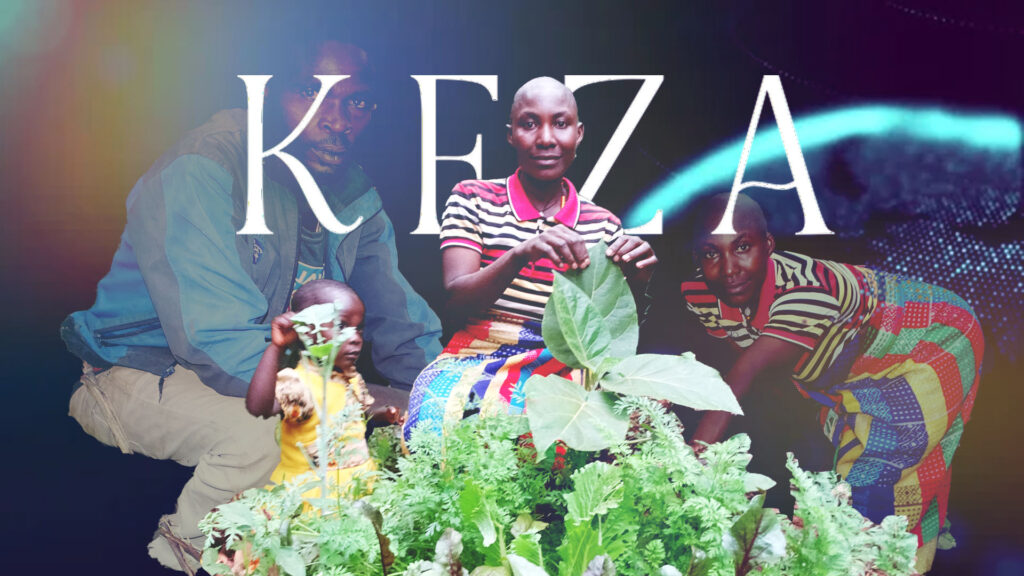“My name is Keza. I joined the Purpose Group very recently.”
For Keza, life with five young children was full of responsibility and challenge. In her community in Burundi, farming is the foundation of survival; however, years of difficult harvests meant that food and income were often uncertain. When Plant With Purpose arrived in her village, she sensed a turning point.
“Plant With Purpose came to our community last year. I heard about the organization’s work to raise awareness and to create Purpose Groups. I was very interested, so I immediately joined one of the first associations that was formed. Since then, I have been an active member.”
Keza’s journey reflects an important truth: transformation often begins with small decisions to think differently. Every action, no matter how small, has an impact.
“After joining and learning about development through small projects, I began raising rabbits with support from the Purpose Group,” she explains.
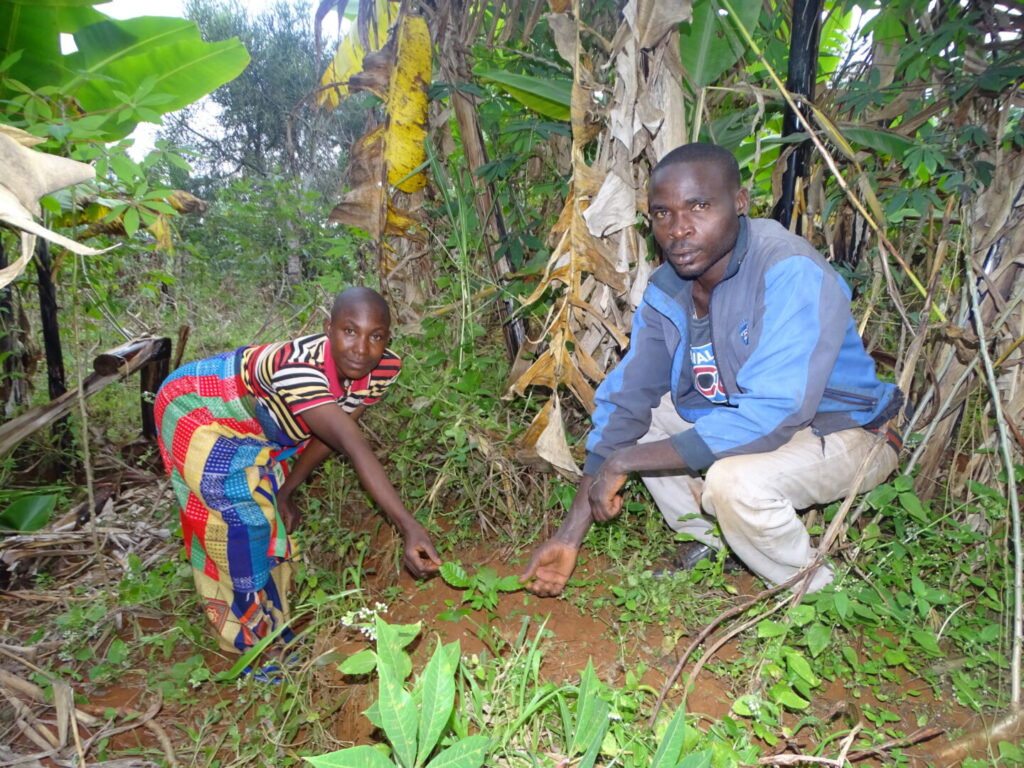
She also stepped into a leadership role. “In our group, I was chosen to be a facilitator, which allowed me to participate in different trainings provided by Plant With Purpose.”
One of the most meaningful for her was the Theology of Work training. “We learned about living in harmony with God, creation, and one another in our community.”
Keza began to realize that her choices, including how she farmed, how she treated her neighbors, and even how she cooked meals, were all connected. And those choices could either harm or heal.
Keza committed herself to applying what she learned. “As a facilitator, I wanted to be an example by applying what I learned. I planted trees of different species, including agroforestry and fruit trees.”
Her farming practices changed as well. “I planted beans using mulch. Where I used to harvest very little, I was able to harvest twice as much. That brought me great joy.”
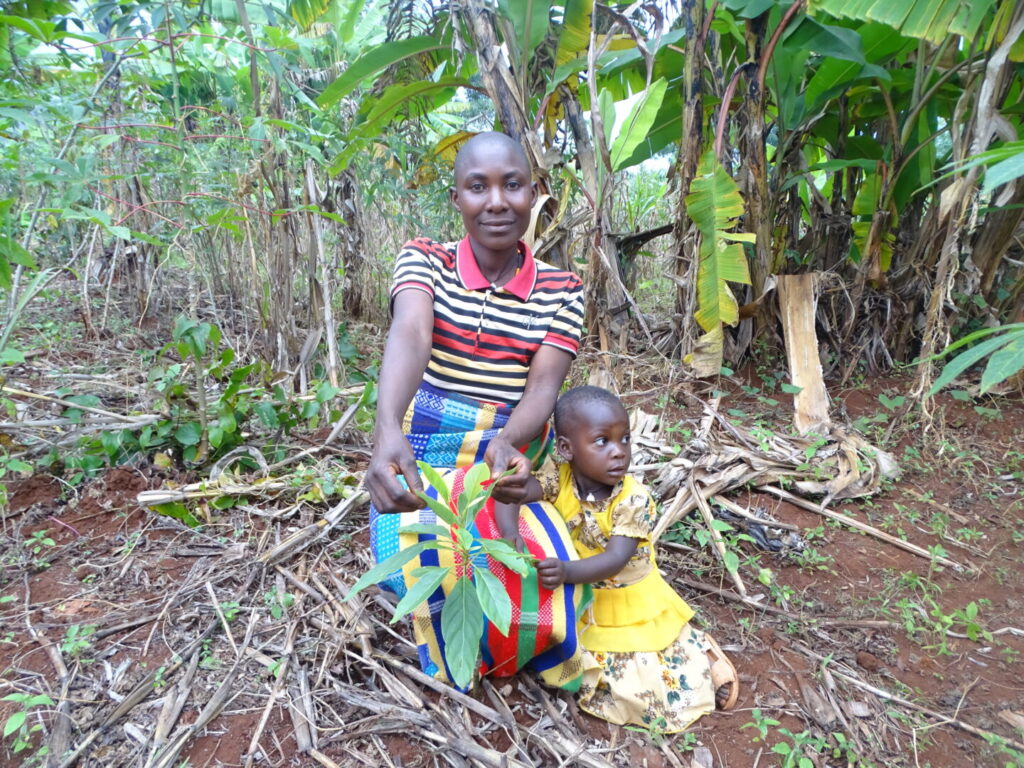
She also began to rethink old habits. “We learned that burning crop residues is harmful. Instead, I made compost, and around it I planted climbing plants that now provide shade and food.”
Looking to the future, she is already planning ahead. “This coming dry season, I plan to install contour canals across my farm to protect it.”
Each decision, including planting trees, using mulch, or making compost, built on the last. None were drastic or overnight changes, but together they represent steady, sustainable growth.
For Keza, applying these lessons transformed her family’s health.
“In our training, we also learned about market gardening and how to rotate or associate crops on the same plot. I applied this quickly.”
Then she shares a deeply personal story. “Something very important happened for my family. One of my children often suffered from severe anemia, which required medicine and a very expensive diet of fruits and vegetables. Now, with the vegetables I grow myself, like beets and others, my child no longer suffers from anemia. Our household is happy.”
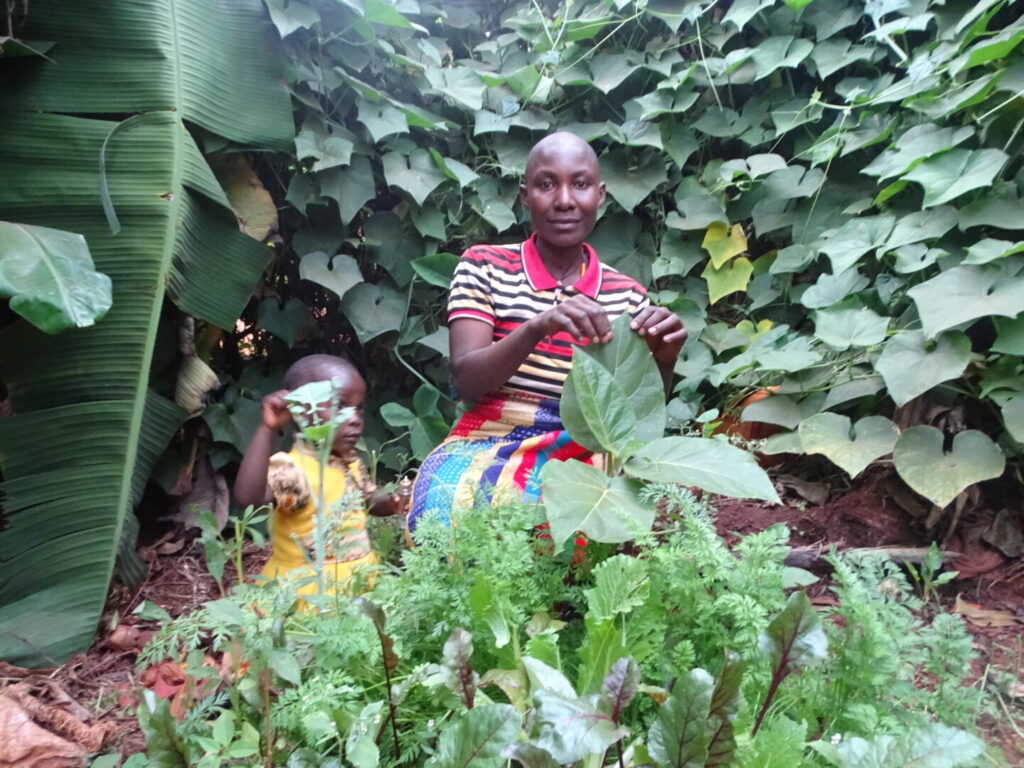
Before, vegetables were often missing from the family’s diet. “Vegetables were often absent from our meals because we couldn’t afford them every day. Now, instead of buying them, I grow them myself, and sometimes I even sell the surplus.”
Her ability to analyze her family’s needs, weigh her options, and apply new techniques made a life-or-death difference.
Keza’s story also demonstrates that careful choices build trust within families, within communities, and throughout creation itself.
“Recently, we also learned how to make and use improved stoves. I realized that this will help reduce the amount of firewood we need, which means less environmental destruction. This benefits not just me but the entire community, since all the Purpose Groups in our area received the same training. I now have an improved stove in my home.”
Her choice to adopt an improved stove may seem small, but it strengthens the bond of trust with her community. When one household reduces firewood use, it protects the surrounding forests that everyone depends on. When many households make the same choice, the impact multiplies.
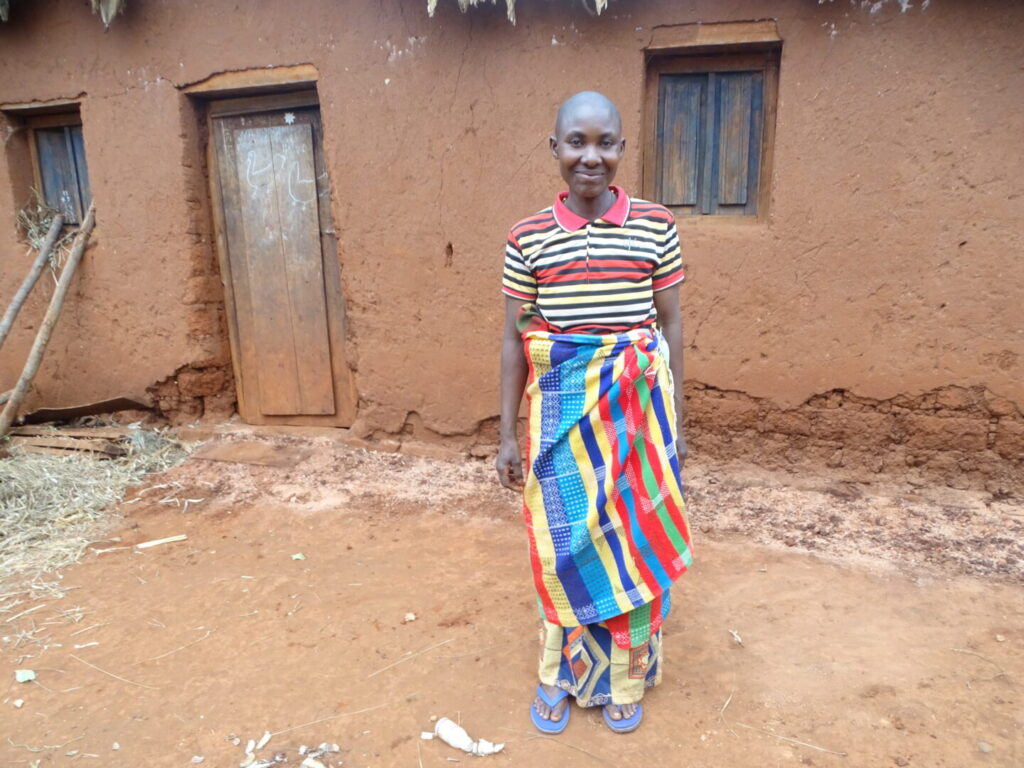
Trust is also cultivated through accountability and planning. “I was also able to attend training on planning and managing activities. I learned how to plan well and to understand in advance whether an activity would yield profit or loss. After this training, I chose chicken farming as my next project, and I am preparing to begin soon.”
By carefully thinking through each step, Keza builds confidence in herself and trust in her leadership. Her neighbors see her decisions bearing fruit, and they are encouraged to follow suit.
Keza’s progress so far is remarkable, but she sees it as just the beginning. “In the future, I plan to raise larger livestock, build a home from sustainable materials, expand my projects, and raise my family’s standard of living.”
Her words reflect the confidence of someone who has discovered that solutions are real and achievable. Trust, once broken by cycles of poverty, is being restored step by step.
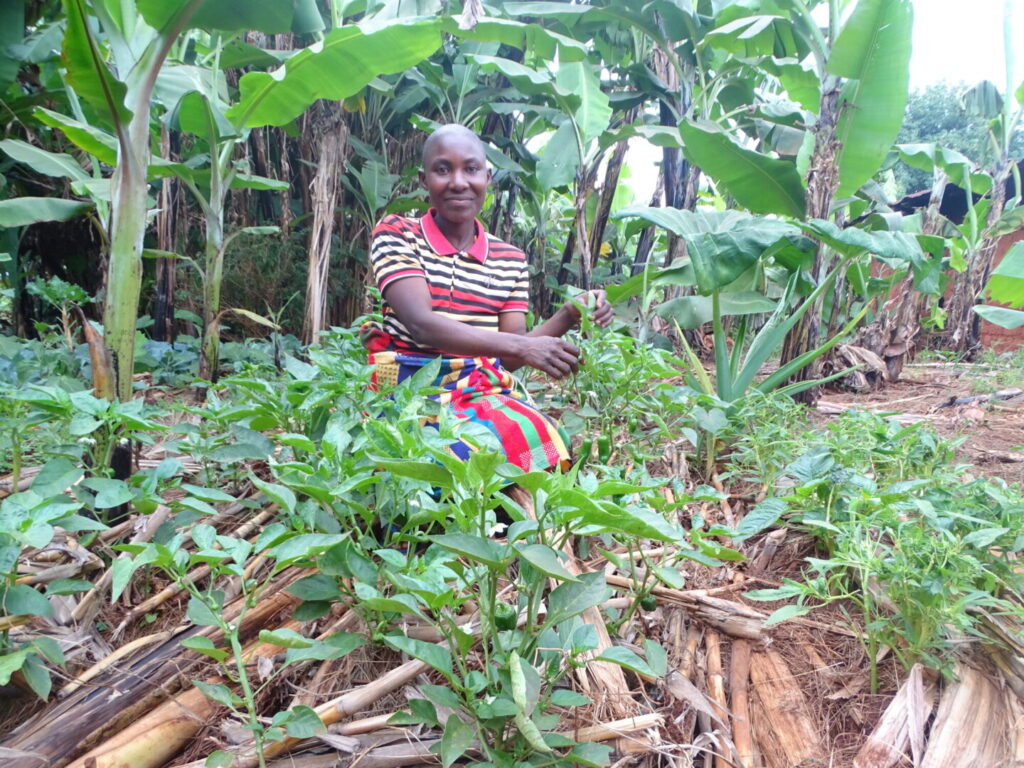
Keza’s story illustrates why Plant With Purpose focuses on steady, sustainable growth rooted in critical thinking. Transformation is not about quick fixes, but about equipping families with the knowledge and tools to analyze their choices and act wisely.
Each action Keza took, including mulching her beans, planting fruit trees, making compost, cooking on an improved stove, seems small on its own. But together, they changed the trajectory of her household. Her child no longer suffers from anemia. Her farm produces more than enough to eat. She has surplus to sell. And her plans for the future are grounded in real, proven strategies.
This kind of impact is only possible because of supporters who believe in data-proven restoration. Supporters who know that when families think critically about the impact of their actions, they can restore their land, their health, their communities, and their hope.
Keza’s testimony is living proof.
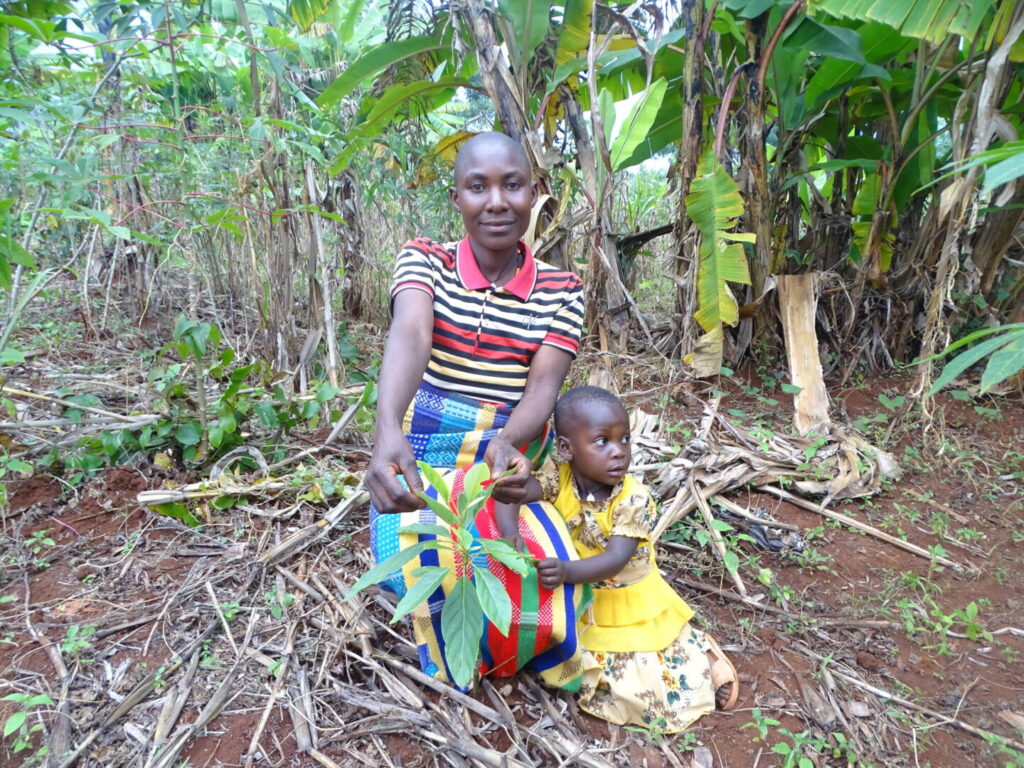
“My sincere thanks to Plant With Purpose for its program and its vision to develop our community.”
Keza shows us that every action counts. Whether it’s planting a tree, using mulch, or cooking with an improved stove, small changes accumulate into profound transformation.
Her story teaches us that when people think critically about the impact of their choices, they can build trust in themselves, in their communities, and in the God who provides.

